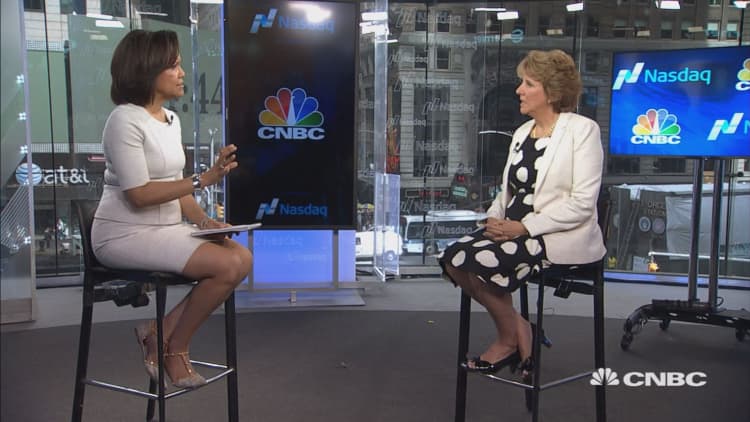
Large employers aren't looking to make big changes in worker health coverage next year, no matter what happens with health policies in Washington. But they are not letting up on pushing employees to take on more of the tab for their benefits.
"They are continuing to do the old tried and true cost-shifting — I'll increase your deductible, or I'll increase your copay or your co-insurance," said Barbara Gniewek, principal at consulting firm PwC. "They're not doing anything that's really transformational."
Most employers expect health-care costs to increase 6.5 percent in 2018, according to PwC's latest "Medical Cost Trend: Behind the Numbers" report. That's about in line with the cost growth trend over the last four years, according to researchers.
After years of squeezing workers to pay more out of pocket, employers will focus more on containing costs by pushing for better pricing from providers and their pharmacy contracts. The trend toward high-deductible plans looks like it's starting to lose some steam.
Roughly 28 percent of large employers surveyed by PwC now say they are planning to explore offering high-deductible plans as the only health insurance option for 2018. That's down sharply from this year, when roughly 40 percent were considering it.
"It's a tight labor market. They need talent to make their business work," explained Gniewek, adding "messing with medical benefits is kind of a (negative) catalyst."
In the current hiring environment, employers see health benefits being even more important as a tool for attracting and retaining employees, and as a result most say they don't plan to cut back on offering health benefits even if Congress repeals Obamacare employer mandates.
While the House GOP plan could usher in greater flexibility when it comes to essential health benefit requirements such as maternity care, most large employers told researchers it won't affect their benefit design near-term:
- 93 percent would not change eligibility for benefits
- 72 percent would still fund 100 percent of preventive services
- 63 percent would keep pre-existing condition protections
- 57 percent would keep protection against lifetime dollar limits
But employers are not likely to shield workers from any potential new taxes on health benefits. Traditionally, employer health insurance benefits have not been taxed for employers or workers. It's a tax exemption that is now estimated to cost the federal government roughly $260 billion a year.
Under Obamacare, the so-called Cadillac Tax imposes a 40 percent excise tax on high-cost health insurance plans.
"What employers said about the Cadillac tax was that most … were going to pass any surcharge onto the employees," said Gniewek.
The House Republican health plan — the American Health Care Act — pushes the start date back from 2020 to 2026, but does not repeal the tax. Employers are watching to see if the tax survives the final bill.


